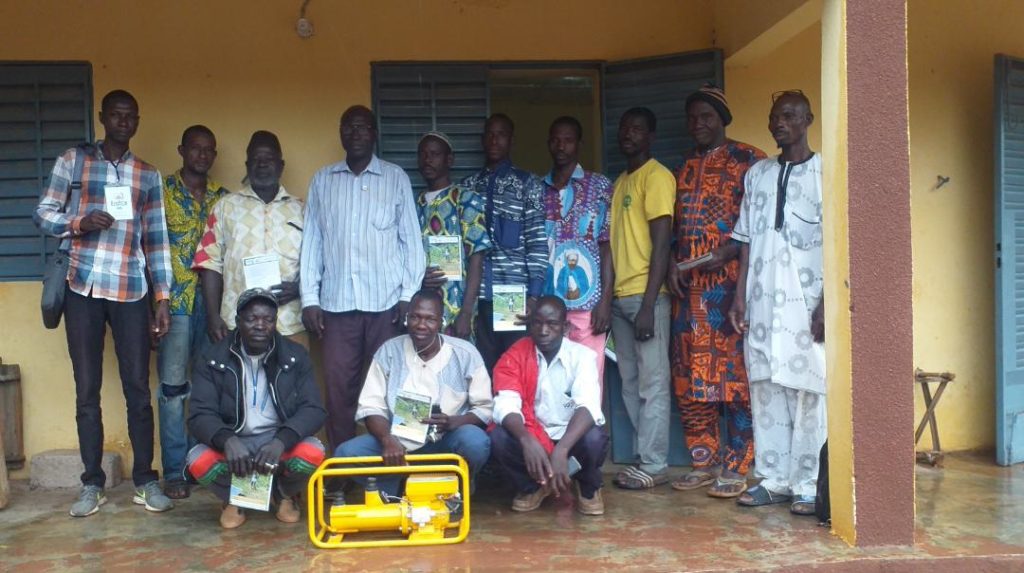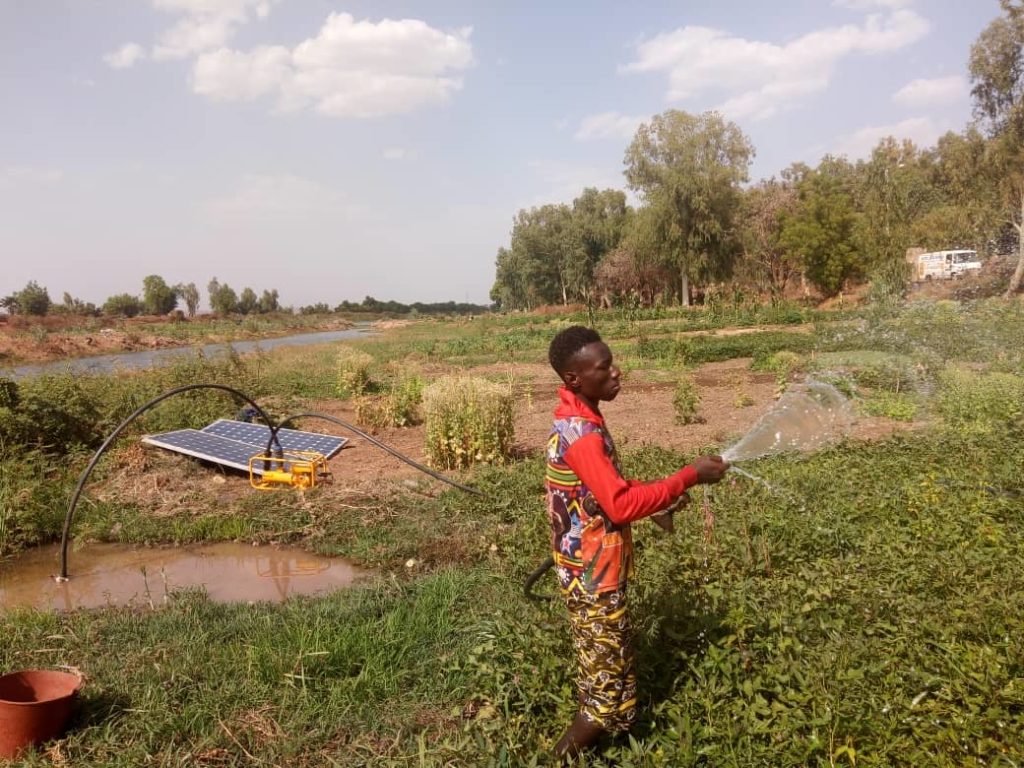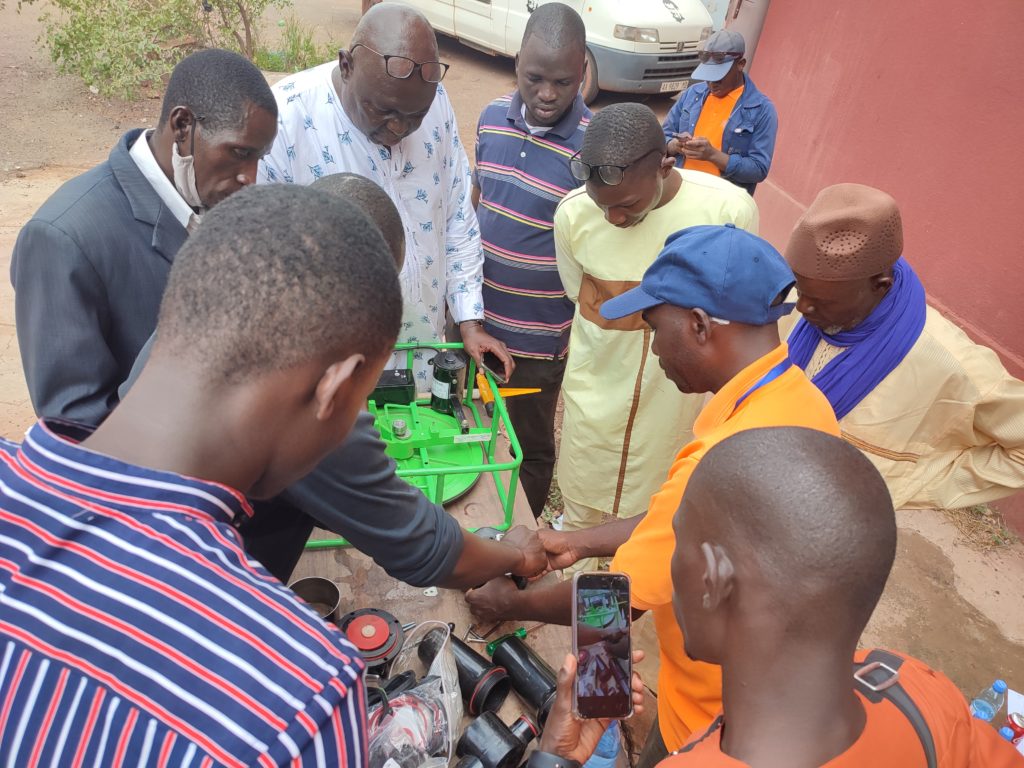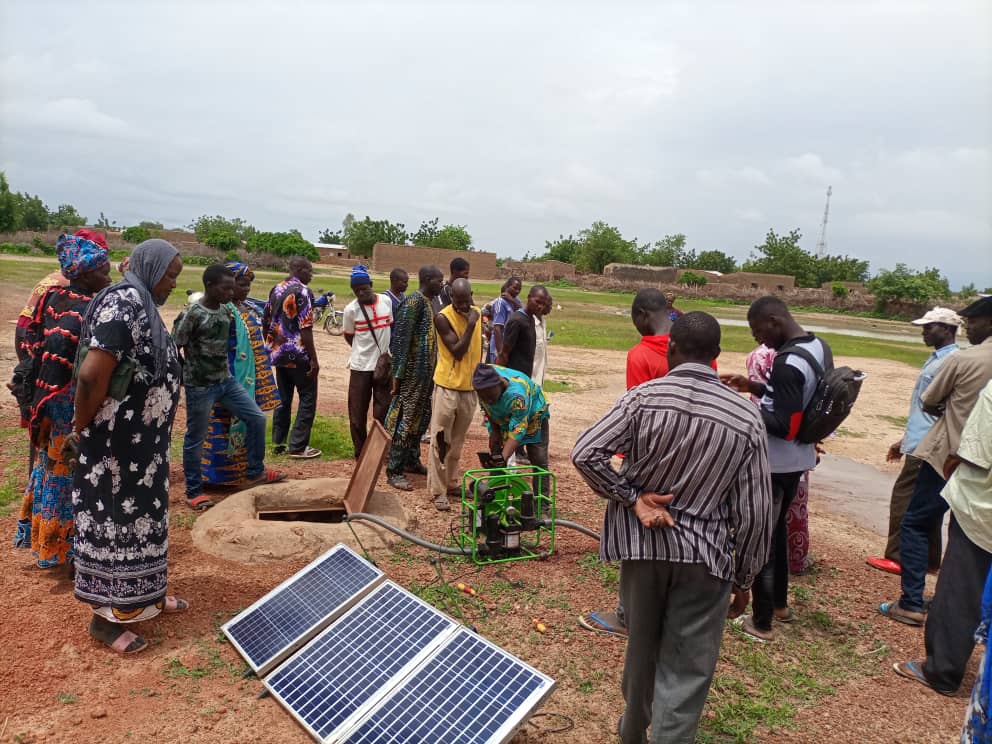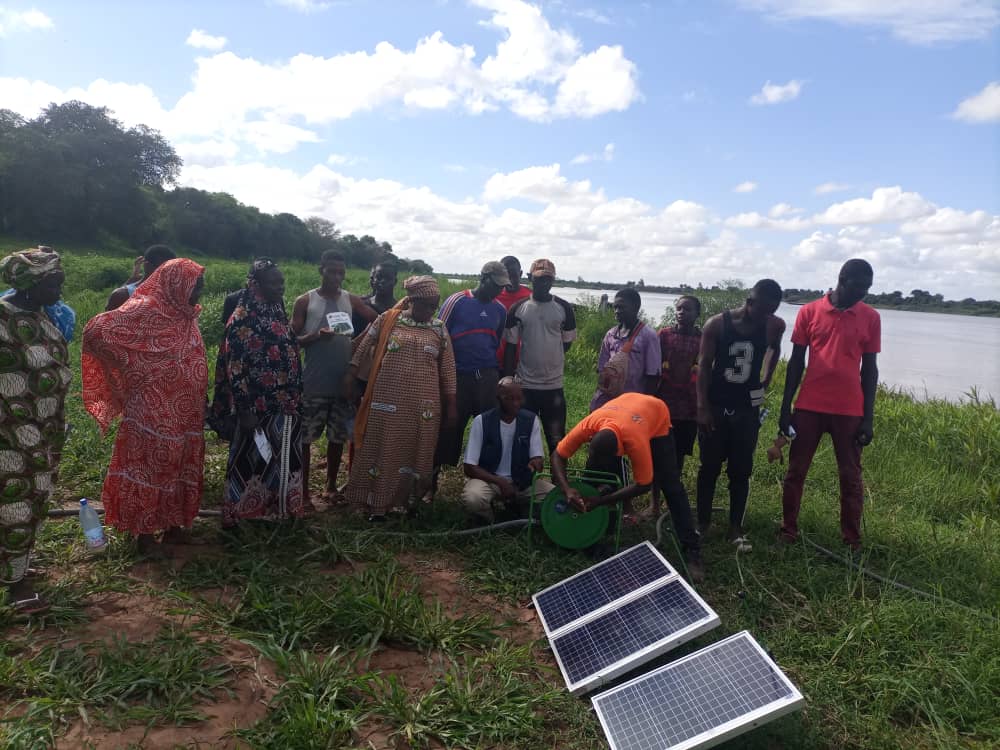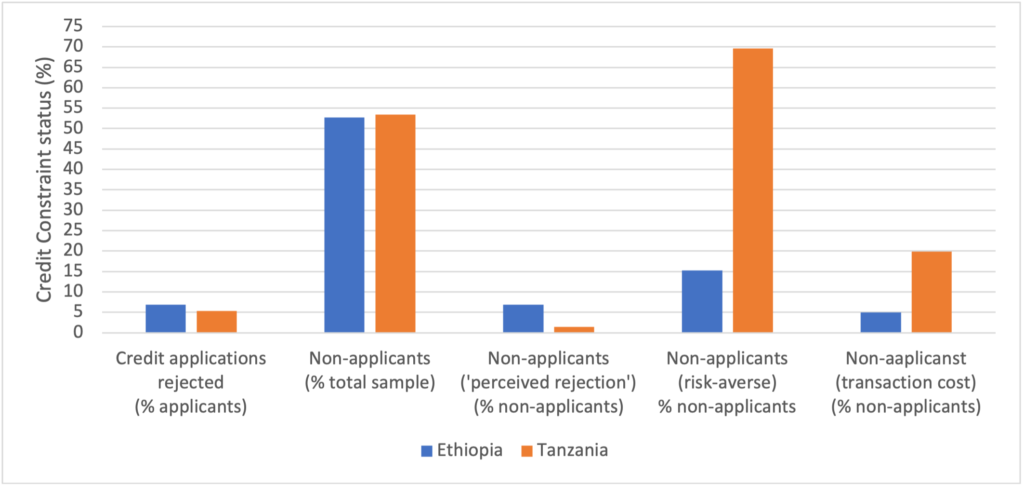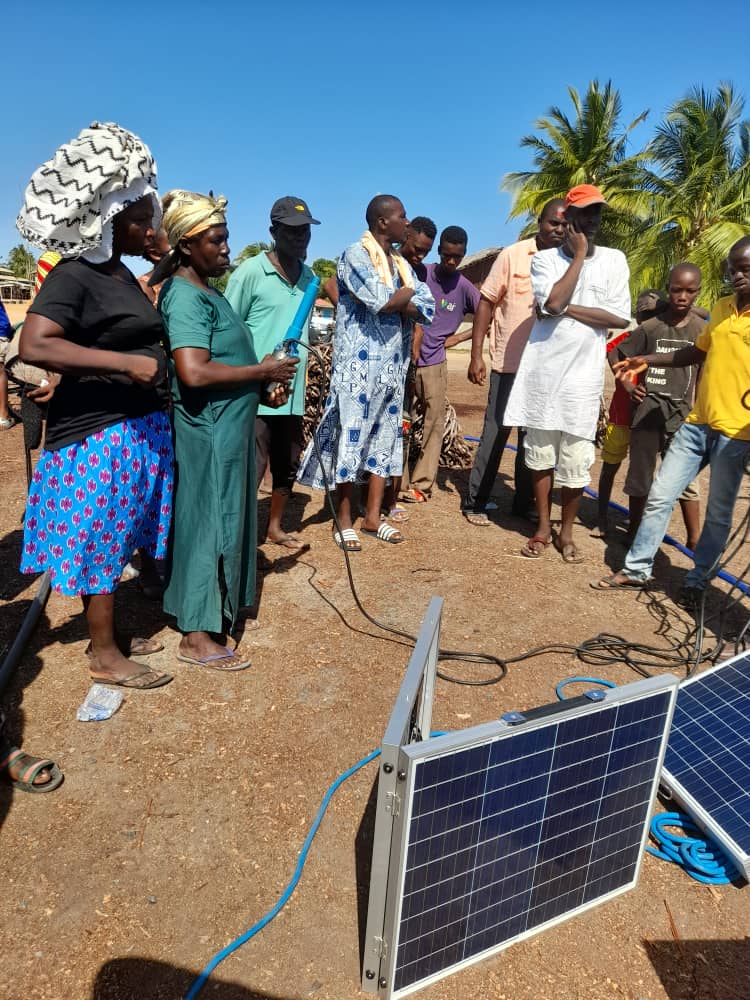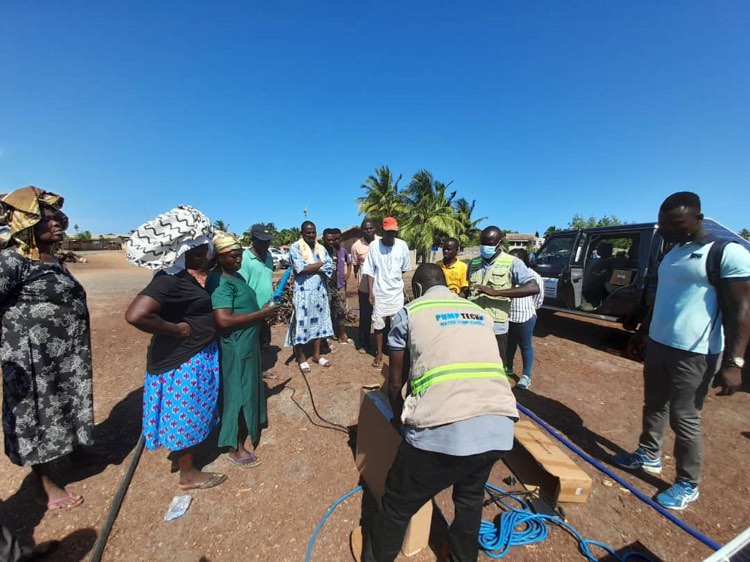by Yihun Dile
The Feed the Future Innovation Lab for Small Scale Irrigation (ILSSI) recently marked a milestone toward its goal to support African scientists to become trainers on the Integrated Decision Support System (IDSS).
September 20-24, 2021, Harar, Ethiopia, at the Africa Center of Excellence for Climate Smart Agriculture and Biodiversity Conservation of Haramaya University.
Scientists from Bahir Dar University contributed to the first jointly implemented capacity development event at Haramaya University’s College of Medical and Health Sciences in Ethiopia on September 20-24, 2021. The training was hosted and organized by the Africa Center of Excellence for Climate Smart Agriculture and Biodiversity Conservation (ACE Climate SABC) and supported by the Feed the Future Innovation Lab for Livestock Systems (LSIL) at the University of Florida.
Dr. Jemal Yousuf, Haramaya University President, opened the training with a virtual address remarking that local capacity development in IDSS is critical to ensure food security and sustainable development in Ethiopia.
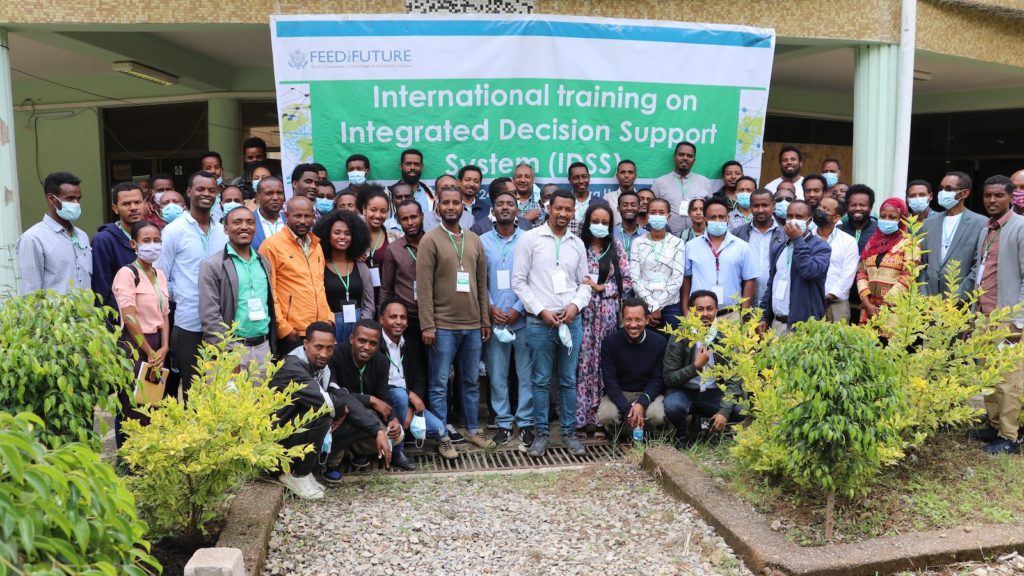
The major focus of the capacity development initiative included training on the Soil and Water Assessment Tool (SWAT), Agricultural Policy Environment eXtender (APEX), and Farm Income Simulator (FARMSIM), as well as their integration.
Students and faculty at Bahir Dar University participated in previous trainings and received mentorship from Texas A&M scientists, leading to successful thesis papers and numerous peer-reviewed publications based on the use of the models. The aim was to strengthen capacity on the tools, such that Ethiopian universities and eventually public agencies would be able to apply the models effectively to monitor and plan for natural resource use in agriculture. In addition, ILSSI sought to ensure that Ethiopian scientists would take over the trainings on the models.
The training emphasized application of the tools to the livestock sector within agriculture and natural resource management. Participants received training on the individual models relating to their fields of expertise. On the final day, all the participants came together to practice the integration of the three models in groups. Such group practice facilitates exchange of knowledge and skills learned over the week, and it demonstrates to participants the value of IDSS to research, plan and monitor in agriculture and natural resources. The group activities provide an opportunity for participants to network and establish lasting scientific collaboration.
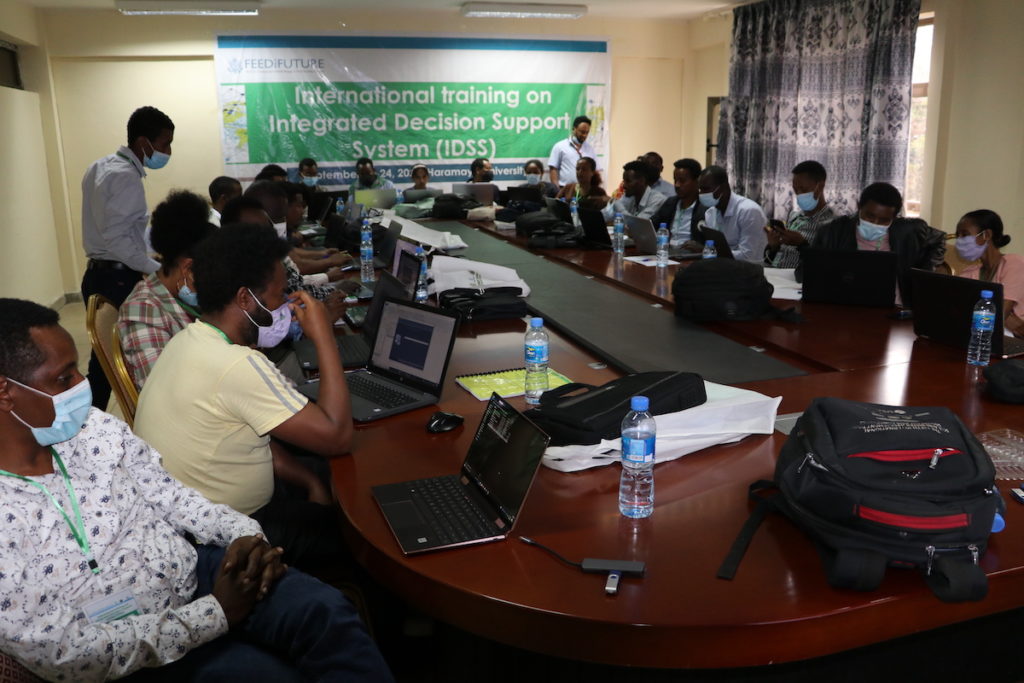
The increasing interest in the IDSS tools was demonstrated by the diversity of participants’ organizations and professions. Government agencies (e.g., Environmental Protection Authority of Harari Region) and non-governmental agencies (e.g., World Vision) participated. Researchers, graduate students, and/or faculty were represented from the Ethiopian Agricultural Research Institute (EARI), Oromia Agricultural Research Institute, Mechara Agricultural Research Center, and universities including Addis Ababa University, Arba Minch University, Ambo University, Bahir Dar University, Debre Tabor University, University of Gondar, Haramaya University, Hawasa University, Selale University, Wolaita Sodo University, Wondo Genet College of Forestry and Natural Resource, and Wollo University. The 70 participants included 13 women scientists.
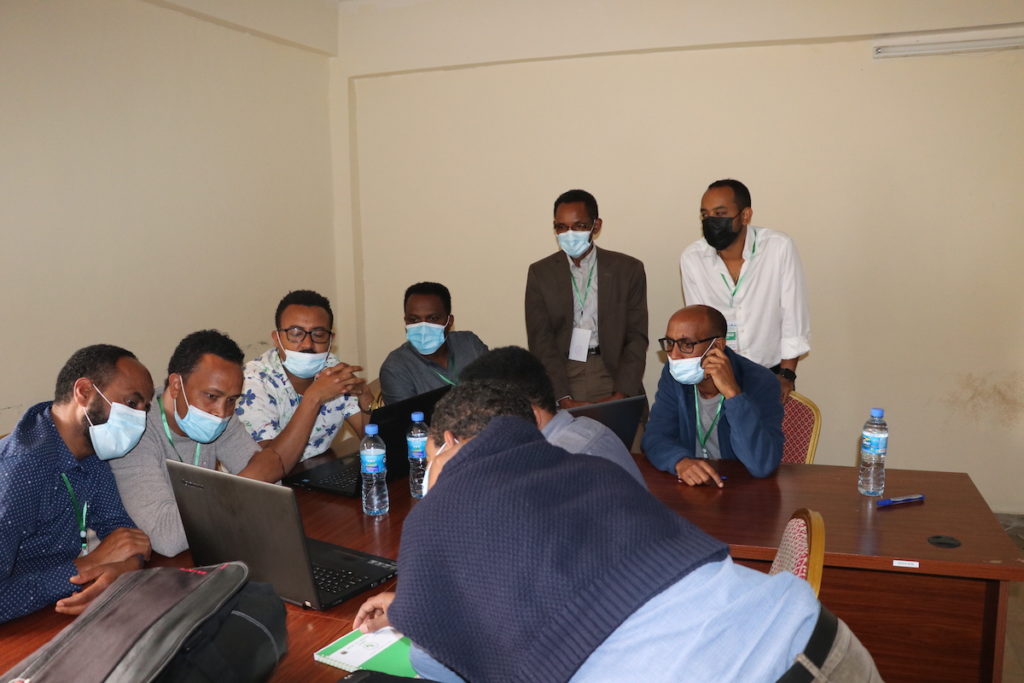
As part of the training event, participants and trainers visited the ACE Climate SABC, Haramaya University research facilities and some notable sites at Haramaya University main campus. Trainers, trainees, and organizers got the opportunity to attend a university-wide research symposium, followed by an ACE Climate SABC dinner event during which participants received training certificates. Certificates of recognition were also awarded to the Feed the Future Innovation Lab for Small Scale Irrigation (ILSSI), trainers from the Texas A&M University and Bahir Dar University, and training organizers at Haramaya University. Final remarks were made by Prof. Mengistu Urge (ACE Climate SABC Leader and Vice President for Academic Affairs), Dr. Tesfaye Lemma (Vice President for Research Affairs), and Dr. Solomon Binor (University Board Member and Science and Research Affairs Director General at the Ethiopian Ministry of Science and Higher Education). Dr. Binor emphasized the importance of short-term capacity development for effective academic and research excellence in Ethiopia. All the speakers showed strong interest to continue the collaboration in research and capacity development activities.
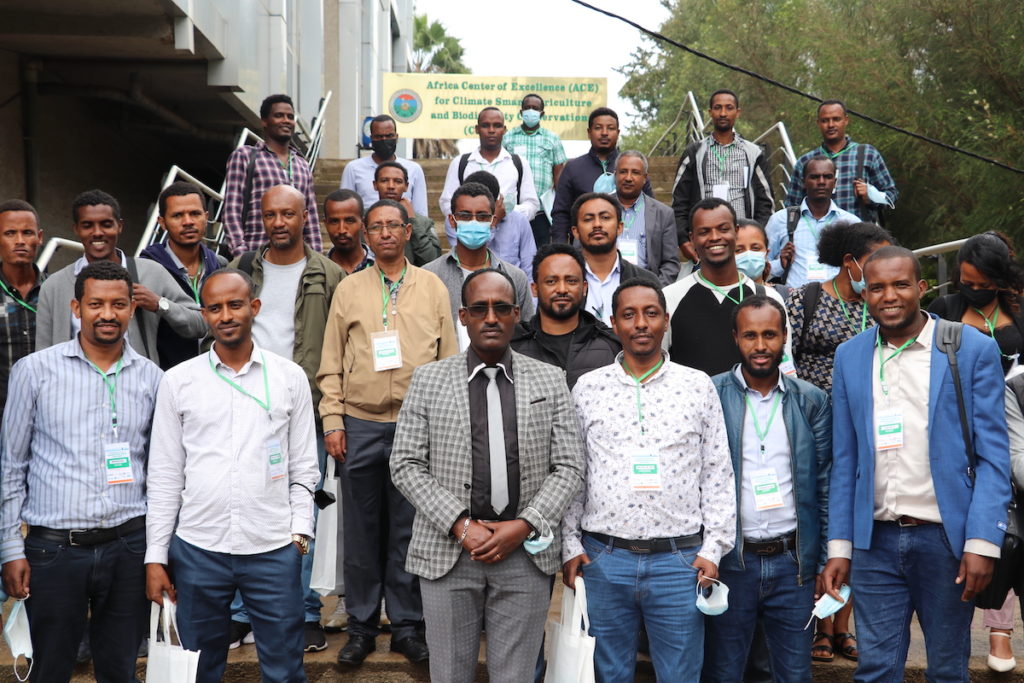
The multi-partner training is the result of a longer-term collaboration between ILSSI, Bahir Dar University, and the Ethiopian Agricultural Transformation Agency (ATA). The ACE Climate SABC at Haramaya University was established through the financial support from The World Bank.

##
This work was funded in whole or part by the United States Agency for International Development (USAID) Bureau for Food Security under Agreement # AID-OAA-L-15-00003 as part of Feed the Future Innovation Lab for Livestock Systems as well as under Agreement # AID-OAA-A-13-00055 as part of the Feed the Future Innovation Lab for Small Scale Irrigation. Any opinions, findings, conclusions, or recommendations expressed here are those of the authors alone.

